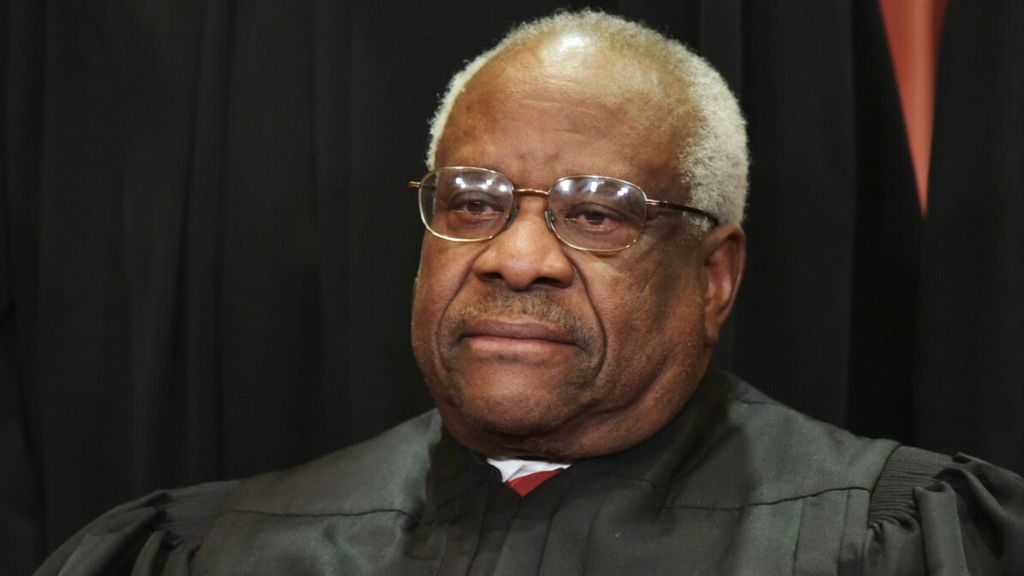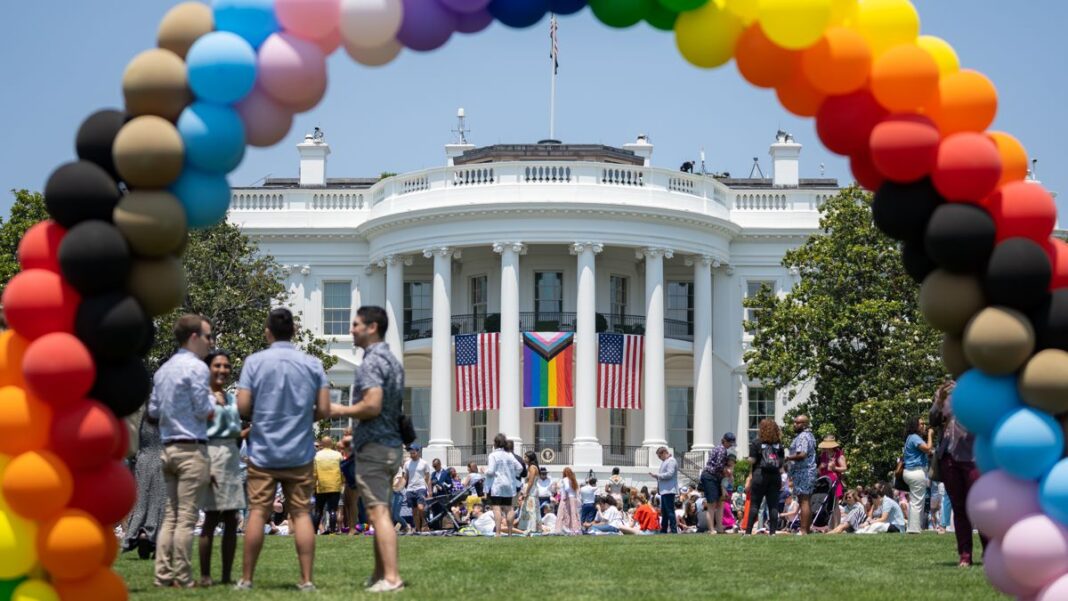Supreme Court Justice Clarence Thomas issued a lengthy, critical dissent in the high court’s ruling that struck down Alabama’s electoral map for congressional elections.
In a 5–4 ruling (pdf) last week, the court found that a map drafted by state Republican lawmakers violated the provisions of the federal Voting Rights Act (VRA) that mandates that states not racially gerrymander districts. The ruling requires the state to adopt a different map before the 2024 elections, which may benefit House Democrats.
Chief Justice John Roberts and Justice Brett Kavanaugh, who were appointed by Republican presidents, joined members of the Supreme Court who were appointed by Democratic presidents in the ruling. Thomas was among four other justices who were appointed by Republicans to disagree with the ruling.
Writing in his dissent, Thomas argued that the Supreme Court’s majority ruling that a section of the 1965 Voting Rights Act that bans gerrymandering based on race is “nothing more than a racial entitlement to roughly proportional control of elective offices—limited only by feasibility—wherever different racial groups consistently prefer different candidates.”
Meanwhile, he added, the Voting Rights Act doesn’t mandate that Alabama “intentionally redraw its longstanding congressional districts so that black voters can control a number of seats roughly proportional to the black share of the State’s population.”
“At the outset, I would resolve these cases in a way that would not require the Federal Judiciary to decide the correct racial apportionment of Alabama’s congressional seats,” Thomas further stated.
“The majority goes to great lengths … to fossilize all of the worst aspects of our long-deplorable vote-dilution jurisprudence,” Thomas also wrote, adding that “it virtually ignores Alabama’s primary argument—that, whatever the benchmark is, it must be race neutral—choosing, instead, to quixotically joust with an imaginary adversary.”
The Majority Ruling
Writing for the majority, Roberts argued that the Supreme Court disagreed with Alabama lawyers’ position on Section 2 of the Voting Rights Act.
“We are content to reject Alabama’s invitation to change existing law,” the chief justice wrote. “We find Alabama’s new approach to [Section] 2 compelling neither in theory nor in practice. We accordingly decline to recast our [Section] 2 case law as Alabama requests.”









